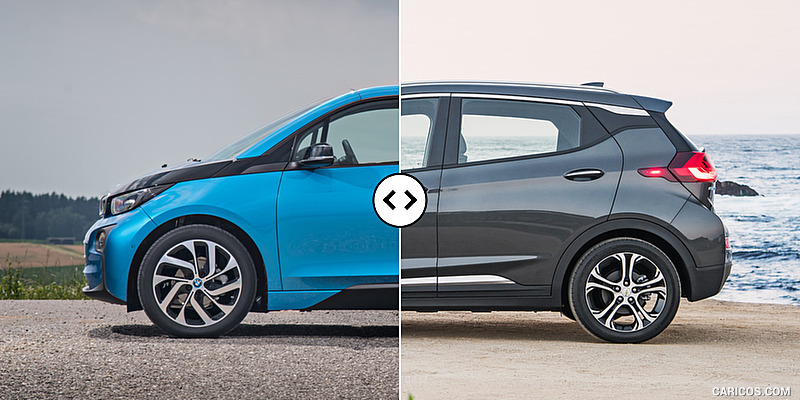i3 Electric versus Bolt EV
With the introduction of Bolt EV, Chevrolet entered the developing market of compact electric hatchback cars. Among the competition in the segment are Nissan Leaf, Kia Soul EV, Mercedes-Benz B-Class Electric, and of course the BMW i3. Considering the popularity of the i3 in the U.S. market, and the challenge from the American manufacturer, we decided to make a brief comparison of these two models.
Power and Range
Although the BMW i3 has been here for just a couple of years now, the German manufacturer released an update for 2017 model year with an introduction of more powerful 94 Ah batteries; 60 Ah will still be available for 2017. The update increased the total range of a battery-only model to 124 miles, which is a 40% increase over the outgoing model. But that's just about half of what you get from Chevy Bolt, which claims to have a total range of up to 238 miles thanks to 60 kWh batteries; i3's battery has an energy capacity of only 33 kWh. Both Chevy and BMW offer similar - 8-years/100,000-miles - warranty plans for the batteries.
More energy means more power for the motor. Bolt EV's single motor produces 200 hp and impressive 266 lb-ft of torque. That's 30 more horsepower and 82 lb-ft more torque than what i3 offers.
Dimensions and Weight
Both cars have similar body styling, but unlike the BMW, Chevy has independently functional door on both sides for the rear passengers; i3 has only one on the driver's side that opens only after the driver's door is open. Chevy Bolt is slightly longer than the i3, and has a longer wheelbase, but it's narrower, while having similar overall height. Chevy offers more room for its Bolt passenger, considering both headroom and shoulder room. And it also offers more behind-the-rear-seat cargo space, too.
But with more powerful batteries comes more extra weight, 619 lbs to be more exact. But thanks to more power Chevy Bolt EV reaches 60 mph from 0 in less than 7 seconds, which is faster than BMW i3's 7.2 0-60 mph sprint time.
Pricing
Despite an apparent advantage in power and range, 2017 Chevy Bolt EV is priced from $37,495, which is $6,200 less than 2017 i3 94 Ah EV.
